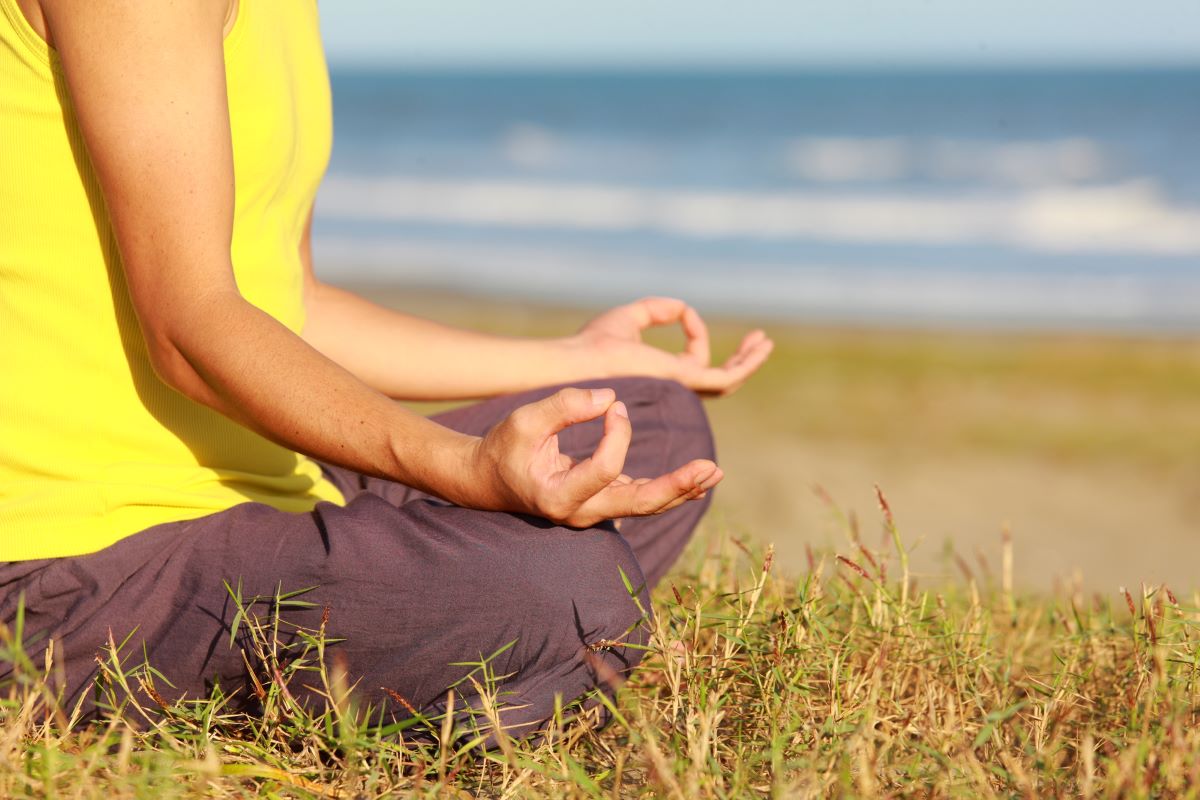
People on the addiction recovery journey often seek tools that can bring clarity, inner peace, and a renewed sense of purpose. Two such tools, which have stood the test of time and scientific scrutiny, are mindfulness and meditation. By offering a refuge from the chaos of addiction, these practices can illuminate a path to lasting healing.
Embracing Mindfulness: A Journey Inward
At its core, mindfulness is about being fully present in the moment, without judgment. It’s about acknowledging feelings, thoughts, and sensations as they are, providing an anchor in the ever-changing currents of life.
The Impact of Mindfulness on Addiction
Mindfulness offers a counterbalance to the impulsive, often unconscious behaviors associated with addiction. By cultivating awareness, you can recognize triggers, pause, and choose a response rather than reacting impulsively [1]. This heightened awareness can also shine a light on the underlying causes of addiction, such as trauma, stress, or unresolved emotions, facilitating deeper healing.
Meditation: A Time-Tested Healing Practice
While mindfulness is a state of being, meditation is a practice — a dedicated time to cultivate mindfulness, clarity, and tranquility. By creating a mental space free from distractions, meditation allows practitioners to connect with their inner selves.
How Meditation Supports Addiction Recovery
Meditation strengthens the prefrontal cortex, the part of the brain associated with decision-making, impulse control, and self-awareness. A study found that after just eight weeks of meditation training, individuals displayed increased activity in this vital region, leading to better control over their actions and choices [2].
Techniques to Begin the Mindful Journey
If you’re intrigued by the potential benefits of mindfulness and meditation, here are some starting points:
Guided Meditation
For those new to meditation, guided sessions — often available as audio recordings or apps — can be an excellent place to start.
Body Scan
A body scan is a form of mindfulness practice where attention is directed to various parts of the body, noting sensations without judgment. It promotes awareness and can be especially beneficial in recognizing the physical manifestations of addiction triggers.
Breath Awareness
Breathing is a natural anchor for our attention. Simply focusing on the inhale and exhale, feeling the rise and fall of the chest, can bring about immense calm and clarity.
The Challenges and Triumphs of Mindful Recovery
Like any practice, mindfulness and meditation come with their challenges, especially in the context of addiction recovery. Memories, regrets, and painful emotions might surface. However, with guidance and persistence, these very challenges can transform into profound insights and healing.
Meditation doesn’t have to be a solo practice. Group meditation sessions or joining a mindfulness-based support group can provide both motivation and a sense of belonging.
A Lifelong Ally in Recovery
The beauty of mindfulness and meditation lies in their adaptability. As you progress in your recovery journey, these practices can evolve, offering solace, insight, and strength at every stage.
In a world filled with external stimuli and internal tumult, these practices offer a sanctuary. They teach that amidst the chaos, there’s a still, quiet place within each of us — a place of strength, resilience, and hope.
Mindfulness and meditation aren’t just tools for addiction recovery; they’re gateways to a richer, fuller, more connected life. By grounding individuals in the present and illuminating the path ahead, they truly harness the power to heal, transform, and renew.
References
[1] Witkiewitz, K., Bowen, S., Douglas, H., & Hsu, S. H. (2013). Mindfulness-based relapse prevention for substance craving. *Addictive behaviors*, 38(2), 1563-1571. [Link] [2] Holzel, B. K., Carmody, J., Vangel, M., Congleton, C., Yerramsetti, S. M., Gard, T., & Lazar, S. W. (2011). Mindfulness practice leads to increases in regional brain gray matter density. *Psychiatry Research: Neuroimaging*, 191(1), 36-43. [Link]Follow me down the rabbit hole!
I'm Alice and I live with a dizzying assortment of invisible disabilities, including ADHD and fibromyalgia. I write to raise awareness and end the stigma surrounding mental and chronic illnesses of all kinds.










